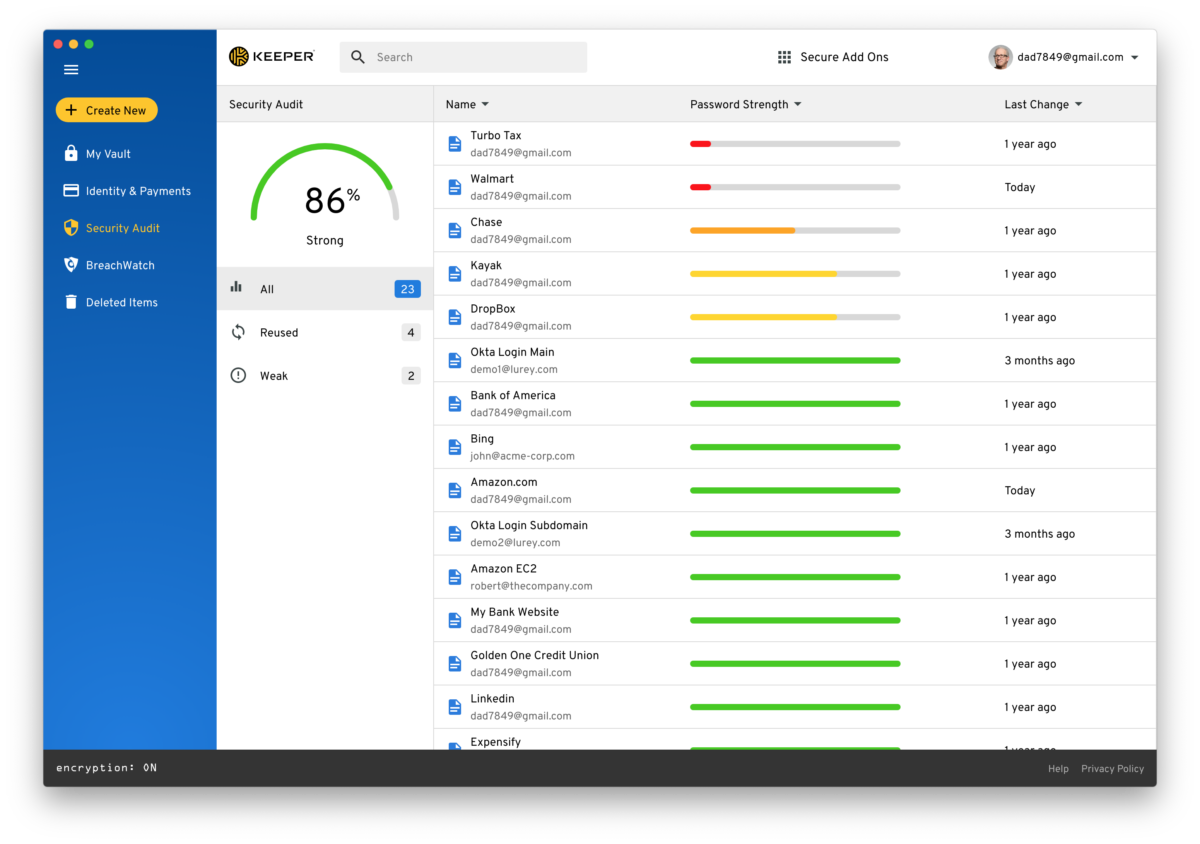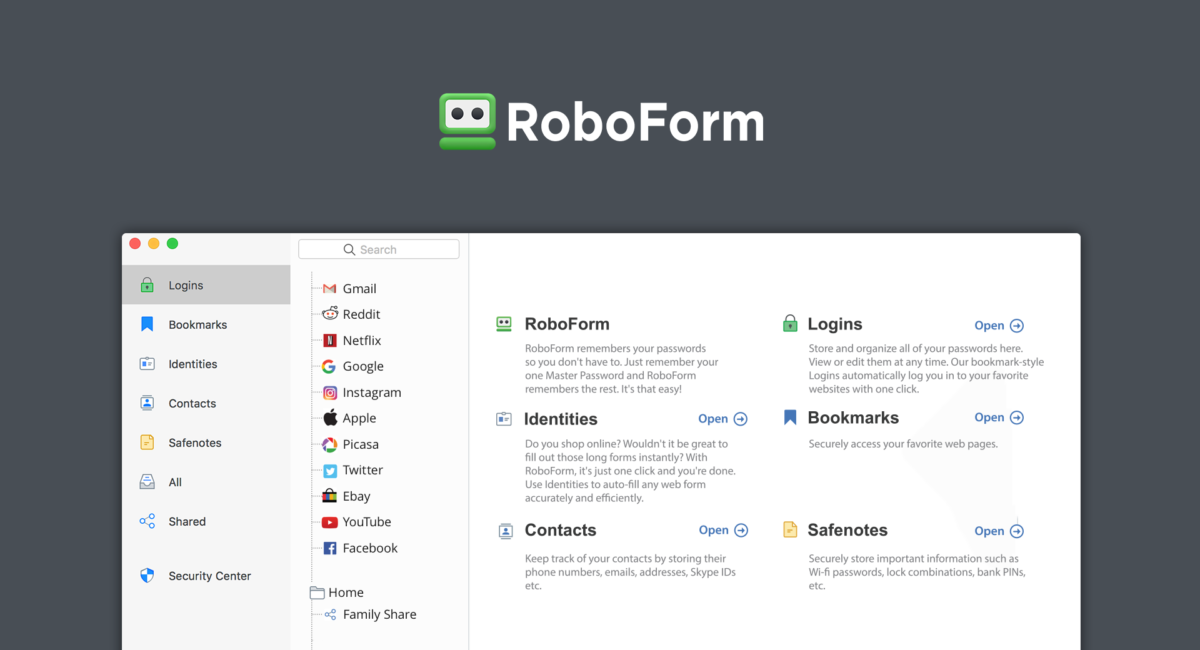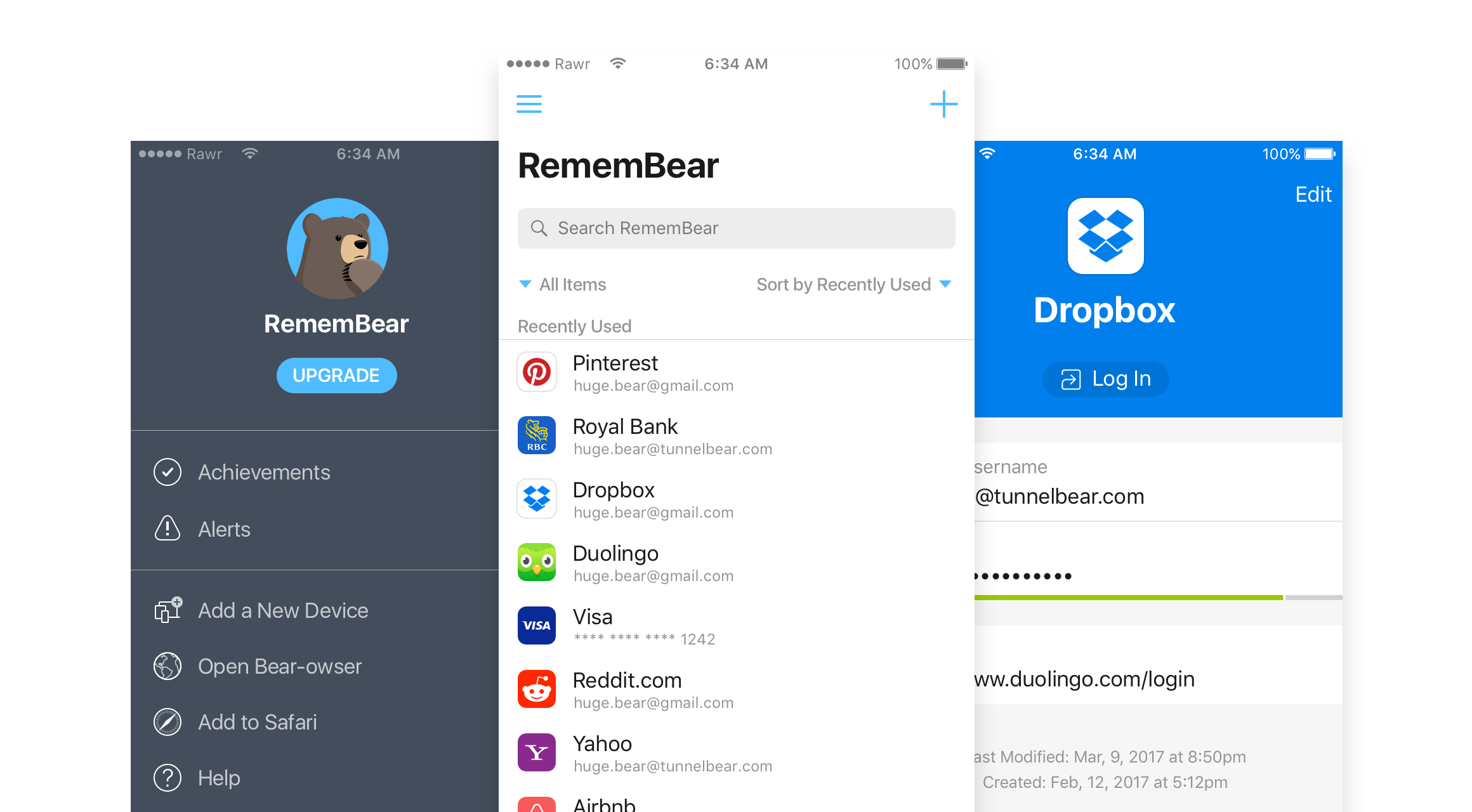What is a Password Manager?
Now more than ever cybersecurity is crucial to keep your personal information safe from hackers. The digital age has made it more convenient for people to complete tasks with a simple click of a button. These tasks include paying your bills or shopping online. But these sites require personal information that must be protected.
So how do websites and e-commerce sites keep their customers’ information safe? Well, with a simple password. Additionally, since you have so many online accounts that require passwords you need a program that helps you manage all of them. This is where a password manager comes in.
In today’s article we’ll be discussing what a password manager is and the various types of software you can get to organize your login codes.
Why You Should Have a Different Password for Every Online Account
Before we explain what a password manager is, let’s first take a look at why it’s important to have different passwords for every online account you have.
Some people will use the same password to login to all their online accounts. It should be noted that this puts you at high risk because hackers will be able to log into all your online profiles if your single password is decoded. That’s why it’s important to have a different password for every account.
It can be difficult to create your own passwords sometimes because most online profiles require lengthy codes that include special characters. Furthermore these passwords can be difficult to remember. If you can’t remember a password you may get locked out of your account.
The solution to your problem is using a password manager. Let’s explain further.
Password Managers Explained
According to Digital Guardian the average person has over 90 online accounts that require passwords to login. These online accounts encourage users to create longer passwords that are complex to prevent them from being decoded by hackers.
Since there are so many complex passwords it becomes increasingly difficult to remember all of them. But it’s important that these passwords remain complex. 80% of online security breaches are due to weak passwords.
Therefore password managers were developed to manage, store and even generate codes for online accounts. All passwords are stored in a virtual vault that’s locked by a master code only you have access to.
Once all your credentials for each site you use are stored inside the password manager’s vault they’re kept safe. Your master password will subsequently be the only code you have to remember to enter the vault.
The vault is typically well organized so you can retrieve the password you want easily when logging into an account. Some platforms even save the URLs of all the accounts you own so you can click on it and log in automatically from your vault.
Safety of Password Managers
If you use a low-quality password manager then you may experience a breach in security. It’s important to read reviews and research a password manager’s history before you opt for it. This way you’re able to see if it has an excellent track record or if the platform has experienced any breaches.
Password managers are extremely secure. They have military-grade encryptions and zero-knowledge technology. This means that not even the password manager service provider can see your master code.
Some password managers include a two-factor authentication too as an extra precautionary measure. So you’re guaranteed a safe virtual platform to store all your online credentials on.
3 Types of Password Managers
Before you opt for a password manager you must first know what type it is so you know firsthand what the software is capable of offering you. There are three types of password managers to pick from. Take a look at them below to help you pick the correct one for your needs.
1. Cloud Computing Password Managers
All your passwords and credentials are stored on a cloud-based server. You’ll need an internet connection to access your vault because it’s an online service provider. The benefit of a cloud computing password manager is that you can access your vault on any device from anywhere in the world.
The only setback is that you must have an internet connection when accessing the vault or you want to be able to log in to your password manager. A cloud-based password manager can be in the form of the following:
- Desktop app
- Mobile app
- Browser extension
2. Desktop Password Managers
A desktop password manager will store all your information directly onto your device. The vault will have a shortcut on your desktop but it’s always locked until you use your master code to unlock it.
The drawback to this type of password manager is that you can only store the vault on one device. If the device goes missing you will lose all your passwords. On the other hand, it’s a safer way to keep your passwords and ideal for people who don’t want their information stored on a cloud.
3. SSO Password Managers
Single sign-on (SSO) password managers are commonly used by companies to allow their employees to access their accounts quickly and easily. This is because it only requires one password to log into accounts as opposed to many codes. It assists people in business in the following ways:
- Faster troubleshooting for IT
- Employees only have to remember one password
- A secure way for staff to enter accounts
This type of code manager is not ideal for any other use other than in a business setting.
Final Thoughts
Now that you know more about password managers will you be getting one? It’s advised that you consider opting for a reputable password manager to help you generate strong passwords and to keep them safe inside a virtual vault.
Don’t use a single password for all of your accounts because you’ll be compromising your online security. Get a password manager and see how easy it is to control all your online login credentials.
- OTwo factor authentication
- Secure password sharing
- Optional secure file storage
- Supports all platforms and browsers

It’s not always easy to recall your password when accessing different apps and sites. That’s where Keeper password manager comes in. Not only does it allow you to create strong and varied passwords, but it helps you access each & everyone of them from all your devices with minimal difficulty.
In actual fact, Keeper is rated one of the best password managers on the market. It was voted as the “Best Password Manager” in 2018 & 2019 by PC Mag. Included on their list of accolades is the fact that it was also rated the “Best Security’’ by Tom’s Guide.
So what makes this password manager so unique? To have a deeper understanding of how it works, its features and benefits, read our short review below.
- Easy to set up
- Inexpensive
- Excellent free plan
- Password analysis

RoboForm has been ranked one of the best password managers and with good reason. Once you sign up on this platform, you can access different websites automatically with just one click. No need to try and recall your passwords, RoboForm does that for you.
RoboForm is designed to generate strong and unique passwords. You don’t have to worry about unauthorized users accessing your sensitive data and private information.
Do you want to learn more about this exceptional password manager? Read the review below where I highlight the app’s company background, key security features, pricing plans and more.
- Free, monthly or annual subscription options
- Memo storage
- Backup kit
- Auto-lock feature

Nearly everyone knows that a password manager is a must-have to securely navigate the internet in today’s digitally focused world. But, for people who are just getting started in the realm of password protection, many of the password managers available seem complicated.
The need for a simple user-friendly password manager presented itself to the Big Tech companies and one such company met this need wonderfully. For a closer look at RememBear, read the short review below.
I explored what RememBear has to offer and why it is suitable for newbies, technophobes & the technologically challenged.



